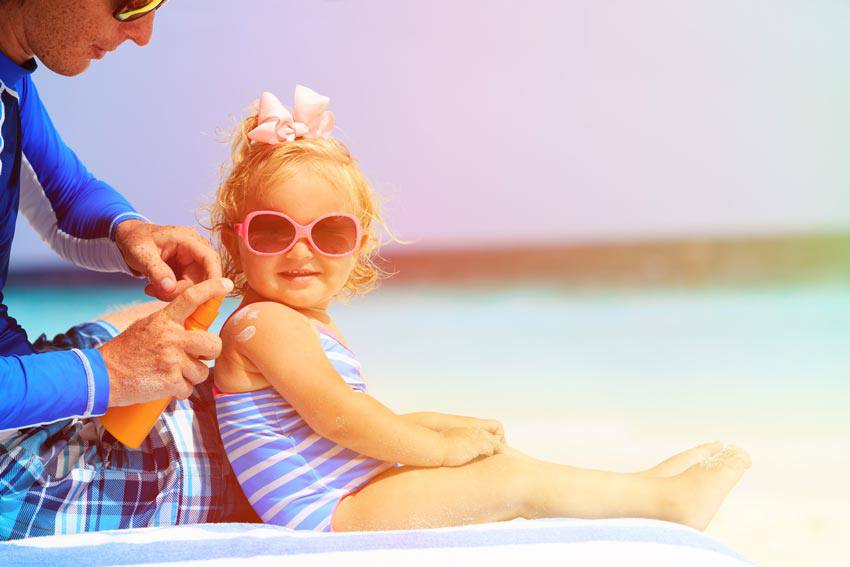Why travellers prefer Blue Cross
- Canada's #1 travel insurance brand and recognized worldwide
- Over 80 years of expertise in insurance
- $5 million travel insurance coverage, with or without deductible
- Flexible and affordable travel insurance solutions
- Free quote available online
- Travel assistance available 24/7 for any emergency, anywhere you travel

Sun safety and misconceptions about skin cancer
Published on: January 20, 2016
“Working on my tan” is one of the most popular activities for people during the summer and when on vacation somewhere south in the winter. Canadians love to spend time outdoors and soak up the sun. However, as research continues to show that it’s vital to protect the skin from too much sun exposure, many of us still get caught up in the desire to get a great tan.
Here are some common misconceptions about sun exposure that may increase your risk of skin cancer:
Misconception 1: Sun safety is overblown
Unfortunately, it is not. “Skin cancer in Canada is just becoming an epidemic right now,” says dermatologist Dr. Jennifer Beecker in theloop.ca. “One in 50 people will have melanoma and that’s the really potentially deadly type. It’s really increased in frequency the last 50 to 100 years.”
Misconception 2: Vitamin D is good for me
Yes, this is true. However, there are other ways you can get vitamin D. If you have a deficiency, you can take a supplement. Even if you are in the sun frequently, it does not necessarily mean your body will properly synthesize the vitamin.
Misconception 3: I don’t burn, so the sun won’t impact me
Whether you have olive skin and rarely burn or are pale and burn easily, everyone is at risk when exposed to the sun.
What about tanning beds?
“The risk of melanoma is 75% greater for people who use tanning beds before the age of 30,” says the Canadian Skin Cancer Foundation. In fact, skin cancer is the second-most common cancer in people 15 to 34 years of age, making it even more important for young people to take sun safety seriously.
Facts about sun exposure and skin cancer
According to the Canadian Skin Cancer Foundation:
- Skin cancer is the most common type of cancer
- 1 in 3 cancers diagnosed worldwide is a form of skin cancer
- 80% to 90% of skin cancers are caused by UV radiation
- 80,000 cases of skin cancer are diagnosed in Canada annually
Before you head outside or to the beach to work on your tan, make sure you take the necessary steps to protect yourself:
- Apply sunscreen, and reapply every few hours
- Choose a sunscreen with a high SPF
- Wear a hat and sunglasses
- Limit your sun exposure during peak hours (generally between 11 am and 4 pm)
Taking these steps will reduce your risk of getting skin cancer, and they can help your skin look healthier as you age.
Get checked
If you notice a change in your skin or you have general concerns, book an appointment to see your doctor. Most forms of skin cancer are treatable.